Related Research Articles

John the Apostle, also known as Saint John the Beloved and, in Eastern Orthodox Christianity, Saint John the Theologian, was one of the Twelve Apostles of Jesus according to the New Testament. Generally listed as the youngest apostle, he was the son of Zebedee and Salome. His brother James was another of the Twelve Apostles. The Church Fathers identify him as John the Evangelist, John of Patmos, John the Elder, and the Beloved Disciple, and testify that he outlived the remaining apostles and was the only one to die of natural causes, although modern scholars are divided on the veracity of these claims.
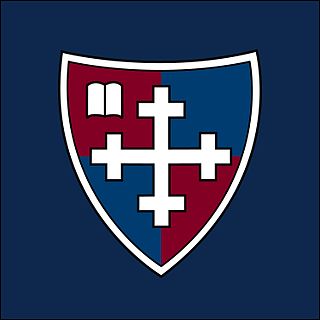
Gordon–Conwell Theological Seminary (GCTS) is an evangelical seminary with its main campus in Hamilton, Massachusetts, and three other campuses in Boston, Massachusetts; Charlotte, North Carolina; and Jacksonville, Florida. According to the Association of Theological Schools, Gordon-Conwell ranks as one of the largest evangelical seminaries in North America in terms of total number of full-time students enrolled.
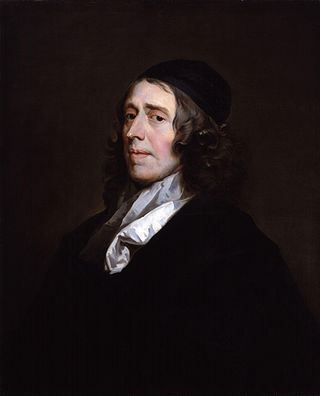
John Owen was an English Puritan Nonconformist church leader, theologian, and academic administrator at the University of Oxford. One of the most prominent theologians in England during his lifetime, Owen was a prolific author who wrote articles, treatises, Biblical commentaries, poetry, children's catechisms, and other works. Many of Owen's works reflect his Calvinist interpretation of Scripture. Owen is still widely read by Calvinists today, and is known particularly for his writings on sin and human depravity.

John Eliot was a Puritan missionary to the American Indians who some called "the apostle to the Indians" and the founder of Roxbury Latin School in the Massachusetts Bay Colony in 1645. In 1660 he completed the enormous task of translating the Eliot Indian Bible into the Massachusett Indian language, producing more than two thousand completed copies.

Benjamin Breckinridge Warfield was an American professor of Reformed theology at Princeton Seminary from 1887 to 1921. He served as the last principal of the Princeton Theological Seminary from 1886 to 1902. After the death of Warfield in office, Francis Landey Patton took over the functions of the office as the first president of seminary. Some conservative Presbyterians consider him to be the last of the great Princeton theologians before the split in 1929 that formed Westminster Theological Seminary and the Orthodox Presbyterian Church.
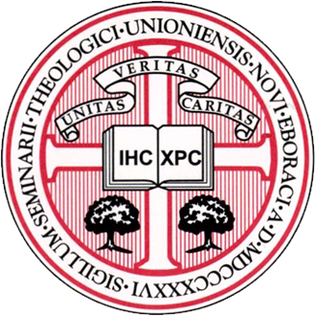
Union Theological Seminary in the City of New York (UTS) is a private ecumenical Christian liberal seminary in Morningside Heights, Manhattan, affiliated in Columbia University. Since 1928, the seminary has served as Columbia's constituent faculty of theology. In 1964, UTS also established an affiliation with the neighboring Jewish Theological Seminary of America. UTS confers the following degrees: Master of Divinity (MDiv), Master of Divinity & Social Work dual degree (MDSW), Master of Arts in religion (MAR), Master of Arts in Social Justice (MASJ), Master of Sacred Theology (STM), Doctor of Ministry (DMin), and Doctor of Philosophy (PhD).

Richard James Foster is a Christian theologian and author in the Quaker tradition. His writings speak to a broad Christian audience. Born in 1942 in New Mexico, Foster spent the majority of his childhood growing up in Southern California. Foster has been a professor at Friends University and pastor of Evangelical Friends churches. Foster resides in Denver, Colorado. He earned his undergraduate degree at George Fox University in Oregon and his Doctor of Pastoral Theology at Fuller Theological Seminary, and received an honorary doctorate from Houghton College.
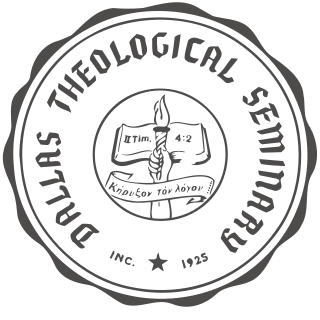
Dallas Theological Seminary (DTS) is an evangelical theological seminary in Dallas, Texas. It is known for popularizing the theological system of dispensationalism. DTS has campuses in Dallas, Houston, and Washington, D.C., as well as extension sites in Atlanta, Austin, San Antonio, Nashville, Northwest Arkansas, Europe, and Guatemala, and a multilingual online education program. DTS is the largest non-denominational seminary accredited by the Association of Theological Schools.
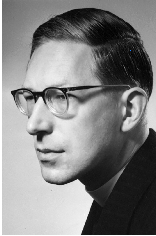
James Innell Packer was an English-born Canadian evangelical theologian, cleric and writer in the low-church Anglican and Calvinist traditions. He was considered one of the most influential evangelicals in North America, known for his best-selling book Knowing God, written in 1973, as well as his work as an editor for the English Standard Version of the Bible. He was one of the high-profile signers on the 1978 Chicago Statement on Biblical Inerrancy, a member on the advisory board of the Council on Biblical Manhood and Womanhood, and also was involved in the ecumenical book Evangelicals and Catholics Together in 1994. His last teaching position was as the board of governors' Professor of Theology at Regent College in Vancouver, British Columbia, in which he served from 1996 until his retirement in 2016 due to failing eyesight.
Liberal Christianity, also known as liberal theology and historically as Christian Modernism, is a movement that interprets Christian teaching by taking into consideration modern knowledge, science and ethics. It emphasizes the importance of reason and experience over doctrinal authority. Liberal Christians view their theology as an alternative to both atheistic rationalism and theologies based on traditional interpretations of external authority, such as the Bible or sacred tradition.
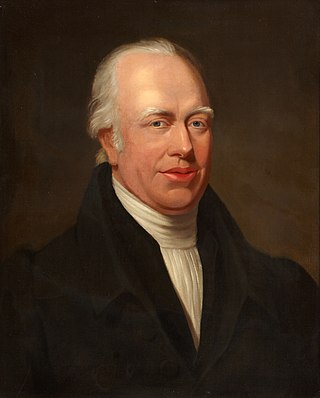
Adam Clarke was a British Methodist theologian who served three times as President of the Wesleyan Methodist Conference. A biblical scholar, he published an influential Bible commentary among other works. He was a Wesleyan.

Covenant Theological Seminary, informally called Covenant Seminary, is the denominational seminary of the Presbyterian Church in America (PCA). Located in Creve Coeur, Missouri, it trains people to work as leaders in church positions and elsewhere, especially as pastors, missionaries, and counselors. It does not require all students to be members of the PCA, but it is bound to promote the teachings of its denomination. Faculty must subscribe to the system of biblical doctrine outlined in the Westminster Standards.

John of Patmos is the name traditionally given to the author of the Book of Revelation. Revelation 1:9 states that John was on Patmos, an Aegean island off the coast of Roman Asia, where according to most biblical historians, he was exiled as a result of anti-Christian persecution under the Roman emperor Domitian.

The post-tribulation rapture doctrine is the belief in a combined resurrection and rapture, or gathering of the saints, after the Great Tribulation.
Kevin Jon Vanhoozer is an American theologian and current research professor of Systematic Theology at Trinity Evangelical Divinity School (TEDS) in Deerfield, Illinois. Much of Vanhoozer's work focuses on systematic theology, hermeneutics, and postmodernism.
William Edwin Boardman was an American pastor, teacher, and author. His 1858 book, The Higher Christian Life, was a major international success and helped ignite the Higher Life movement. Boardman's work attracted international attention, especially in England, where Boardman exercised great influence during 1873–1874.

Ben Sira or Joshua ben Sirach was a Hellenistic Jewish scribe, sage, and allegorist from Seleucid-controlled Jerusalem of the Second Temple period. He is the author of the Book of Sirach, also known as "Ecclesiasticus".
Sidlow can be a surname and occasional given name. Notable people with the name include:
References
- 1 2 DeRemer, Bernard R. "Scholar and Theologian: J. Sidlow Baxter". Archived from the original on 25 September 2010. Retrieved 14 August 2022.
- ↑ Amazon.com author page for J. Sidlow Baxter.
- ↑ Baxter, J. Sidlow (1987). Explore the Book. Grand Rapids: Zondervan Publishing House. p. 1760. ISBN 0-310-20620-0.
- ↑ Roberts, Andrew (20 July 2001). "Archives Edwin Roberts: Mr Everett's memories".
- ↑ Roberts, Andrew (20 July 2001). "Archives Edwin Roberts: Memories of Gospel Hall Chapel Street Billericay Essex".